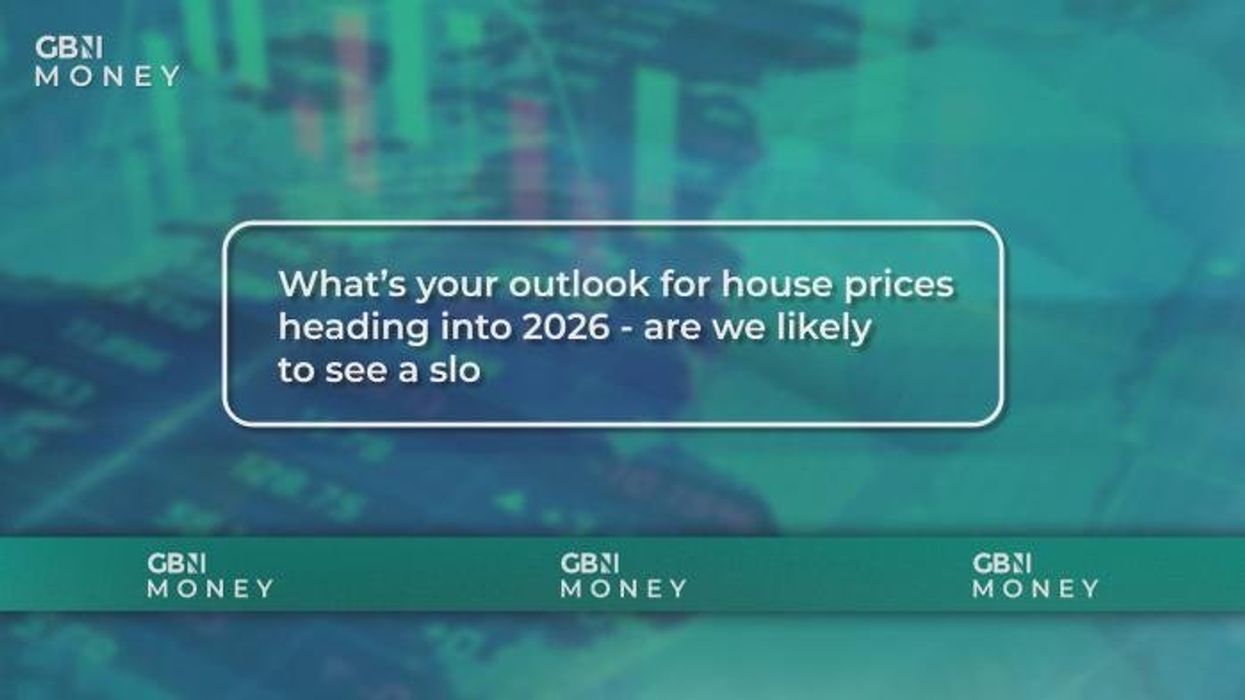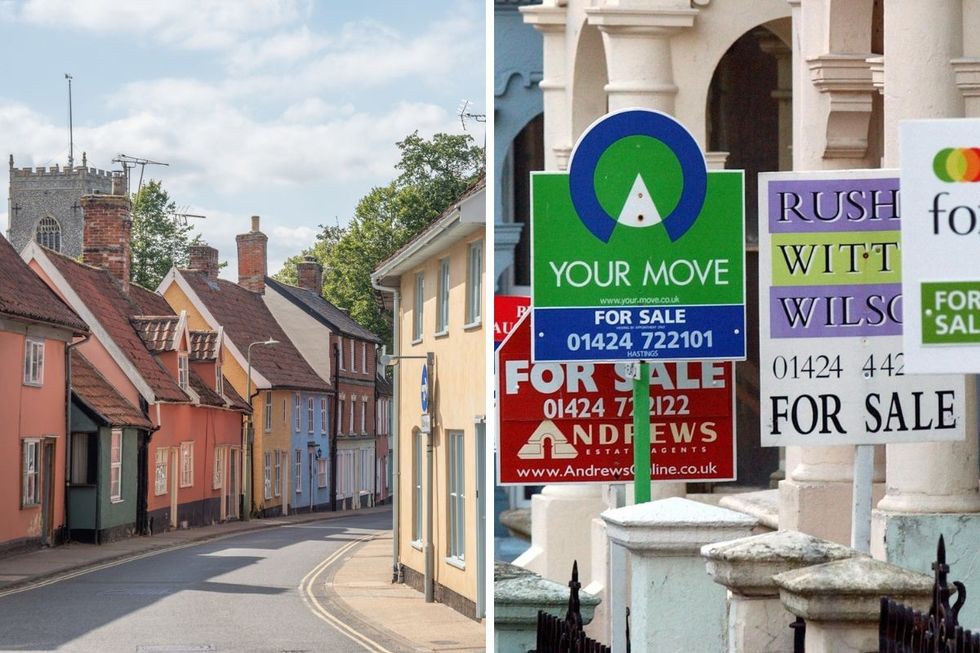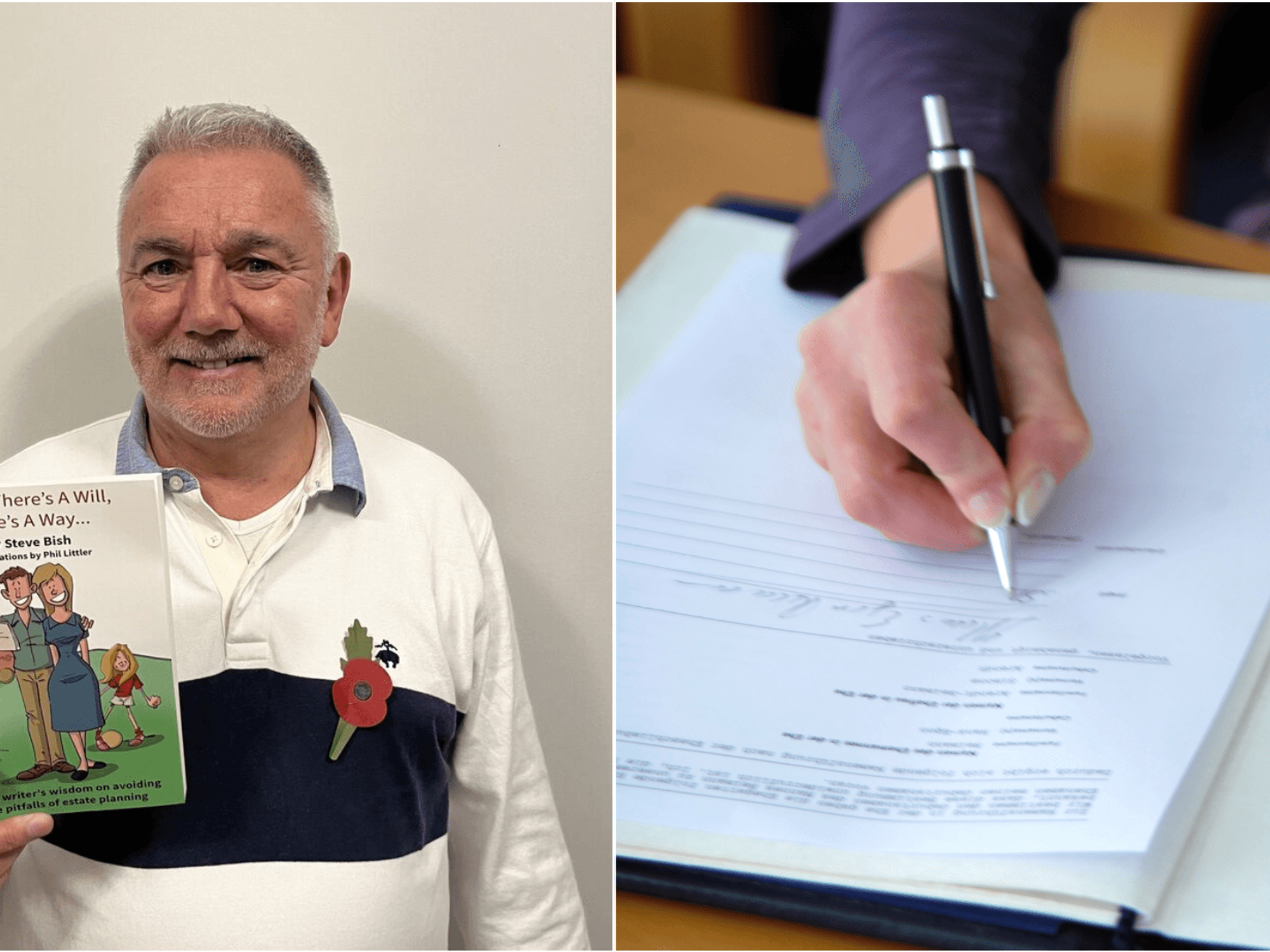House prices set to rise by £80,000 - check which UK regions will benefit most

What will happen to house prices going into 2026? |
GBNEWS

Savills' five-year forecast sees house prices rising 22.2 per cent
Don't Miss
Most Read
UK property values will increase by 22.2 per cent during the next five years, potentially adding approximately £80,000 to the typical home's worth, estate agent Savills has projected.
The firm's analysis indicates that the average property price, currently standing at £359,875, could reach £439,806 by the end of 2030.
This forecast applies to the mainstream second-hand property market, particularly homes purchased with mortgages, rather than new-build properties.
The predicted growth represents a continuation of historical patterns, with property values having increased by an average of 23.5 per cent every five-year period since 2014, according to Land Registry data.
However, the estate agent anticipates that growth will remain modest in the immediate future, with buyer confidence weakened and economic concerns persisting.
Property values are expected to increase by merely one per cent during 2025, followed by a two per cent rise in 2026, as uncertainty surrounding the forthcoming Budget and persistent inflation concerns dampen market activity.
With inflation remaining at 3.8 per cent, economists have become less optimistic about the speed of potential interest rate reductions, constraining buyer activity.
Lucian Cook, head of residential research at Savills, stated: "Our previous forecast assumed falling interest rates would boost borrowing and investment, supporting house price growth. However, with inflation stuck at 3.8 per cent, economists are less confident about the pace in which rate cuts will happen."
He added that elevated mortgage rates throughout next year, combined with a deteriorating employment market featuring modest unemployment increases and decelerating wage growth, would likely restrict price appreciation.
The most significant price increases are anticipated in Yorkshire and the Humber alongside the North East, where values could surge by 28.8 per cent by 2030.

With inflation stuck at 3.8 per cent, economists are less confident about the pace in which rate cuts will happen
| GETTY / PAScotland, Wales and the North West are all projected to experience 27.6 per cent growth during the same period, whilst the West Midlands and East Midlands are expected to see increases of 24.6 per cent and 24 per cent respectively.
London faces the weakest prospects, with prices forecast to climb just 13.6 per cent over the five-year period.
Dan Hill, research analyst at Savills, explained: "Regional performance is largely influenced by where we are in the housing market cycle.
"Since 2016, we've been in the second half of the cycle, where the more affordable regions in the north and Scotland outperform the UK average, and capacity for growth in London and the south is more limited."
Market conditions are anticipated to improve substantially from 2027, with annual price increases of four per cent that year, followed by five per cent in 2028 and 5.5 per cent in 2029, before moderating to four per cent in 2030.
LATEST DEVELOPMENTS:
 House prices have soared in some regions | GETTY
House prices have soared in some regions | GETTYSavills attributes this acceleration to expectations of reduced inflation, strengthening GDP growth, declining unemployment and a persistent shortage of new housing stock.
The firm's projections assume inflation will total 11.6 per cent across the five-year period, whilst interest rates are expected to decrease to 3.5 per cent next year, three per cent by 2027 and ultimately 2.5 per cent in 2029.
These assumptions are derived from Oxford Economics forecasts, though some economists remain sceptical about interest rates falling to such levels.
The property market currently faces challenging conditions, with an abundance of available properties meeting reduced buyer interest, creating favourable circumstances for purchasers whilst limiting price appreciation.

Savills expects this pattern of constrained demand and modest price growth to persist throughout the remainder of 2025 and into 2026
| GETTYSavills expects this pattern of constrained demand and modest price growth to persist throughout the remainder of 2025 and into 2026.
The estate agent forecasts that property values will experience genuine growth after accounting for inflation from 2028, marking the first occurrence of real-terms appreciation since late 2022.
Mr Cook emphasised that Budget announcements could significantly impact the market, noting: "Direct changes to transactional taxes could alter the incentives that currently shape buyers' housing decisions, while broader tax increases on certain population segments could reduce some prospective buyers' capacity to finance home purchases."
He concluded: "Ultimately, however, the biggest influence on the mainstream market will come from how financial markets react to the Budget itself."
More From GB News










